The situation was that juvenile gunmen at an illegal checkpoint requested U.N staff to give them food, money and water, otherwise they would not be allowed to pass. In this situation, military observers must find a way to negotiate with these child gunmen to get through the checkpoint without violating U.N. principles without meeting their demands because they will ask more. The negotiations were not simple, especially at times that the drunken gunmen became angry and opened fire in the air, threatening military observers.
Under the observation and guidance of the instructors, the prospective military observers calmly overcame the language barrier with the gunmen, making them calmer and agreeing to let the convoy pass.
Colonel Truong Anh Tuan, a member of the Content Sub-committee under the Management Board of the exercise, said that it was not easy to deal with such situation in a locality facing political and security instability, requiring the negotiators to show their complicated skills.
“In the field exercise, situations are placed at the highest and most difficult level possible to ensure the surprise for military observer trainees to apply theories, basic skills learned at the CEPPP to find optimal solutions,” said Col. Tuan.
The situation required military observer trainees to practice a number of basic skills such as negotiation, mediation, observation, supervision, inspection, using of walkie-talkies, making report, giving first aid, among others.
Major Shay Bassett, a military observer from New Zealand, who took on peacekeeping duties in Bosnia and Timor Leste, said that situations in which peacekeepers cope with opposition actions from local people and require peacekeepers’ calmness in negotiation are popular in localities where U.N. missions are stationed. She spoke highly of the CEPPP hosted by Vietnam and Japan and its meaningful activities.
Expressing delight at performance of military observer trainees, Major Syafiq, Malaysian instructor of Military Observer Group No.1 said that the trainees well controlled the situation at the illegal checkpoint. The officer believed that skills gained during the exercise will help the trainees in their future work at an U.N. mission.
    |
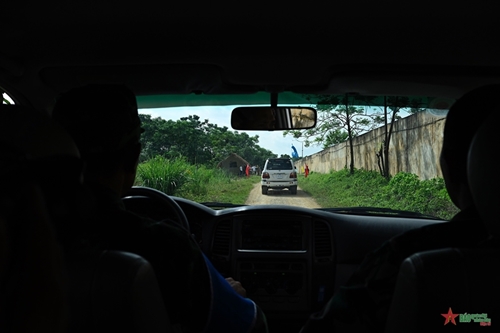 |
|
The patrol road of the military observer group is similar to that in an U.N. peacekeeping mission. |
    |
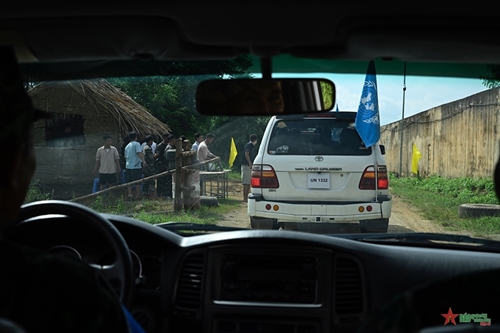 |
|
The patrol vehicle convoy is stopped at the illegal checkpoint. |
    |
 |
|
Military observer trainees get out of the vehicles and talk to the gunmen. |
    |
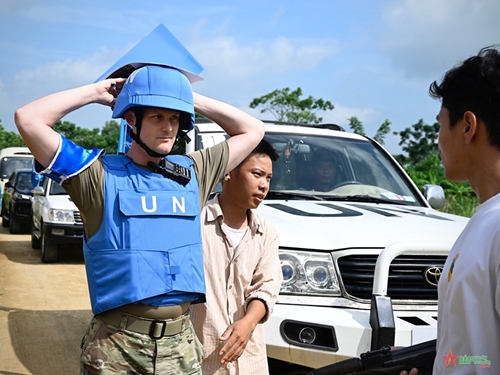 |
|
Child gunmen ask for searching U.N. staff. |
    |
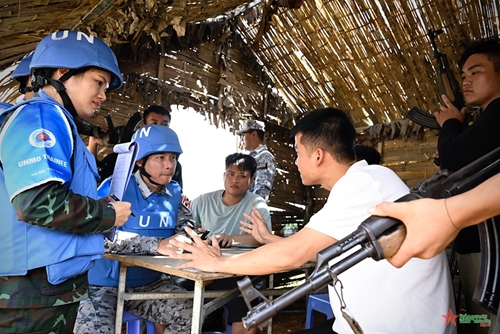 |
|
The negotiation is tense when the gunmen become angry. |
    |
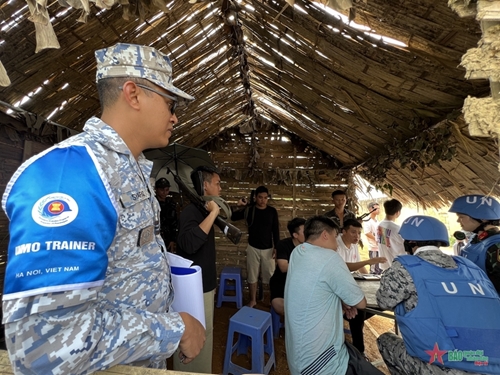 |
|
The trainees learn how to control the situation at the checkpoint to not provoke the gunmen. In the photo: Instructors supervise and guide trainees during the negotiations with gunmen. |
    |
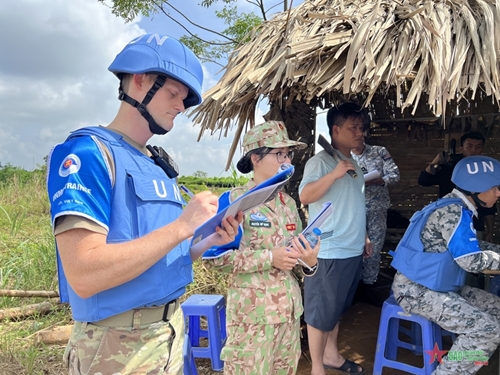 |
|
Apart from negotiation, the trainees are tasked to collect information, grasp situations, and write a report according to the U.N. form. |
    |
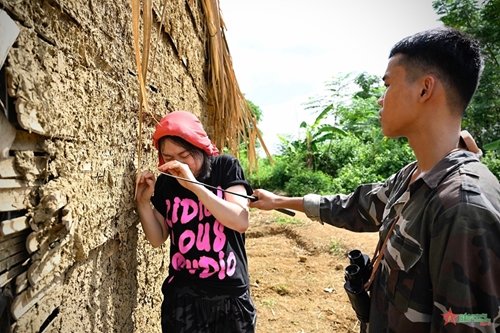 |
|
Juvenile gunmen in a tense situation |
    |
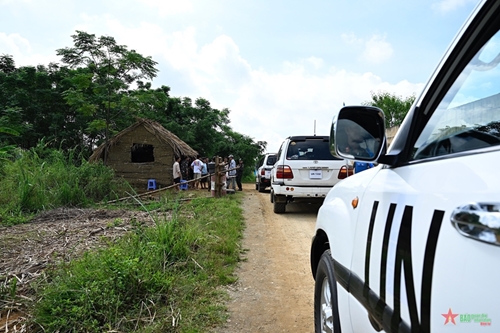 |
|
The patrol vehicle convoy is going to pass the checkpoint after the successful negotiation. |
Translated by Mai Huong